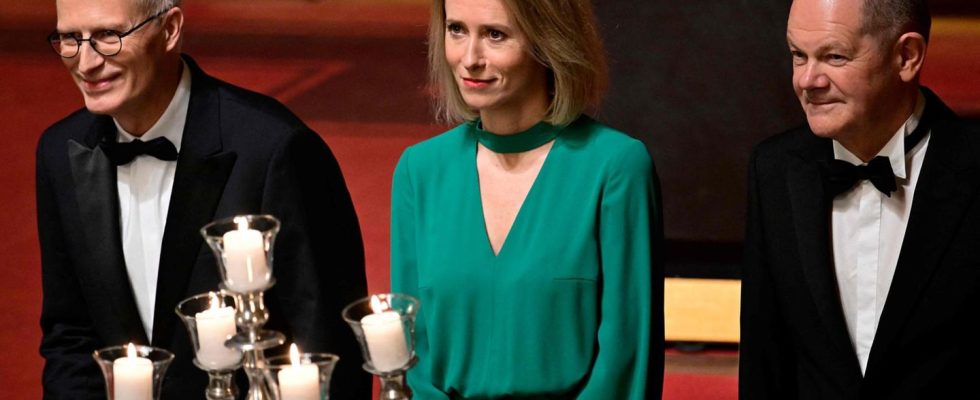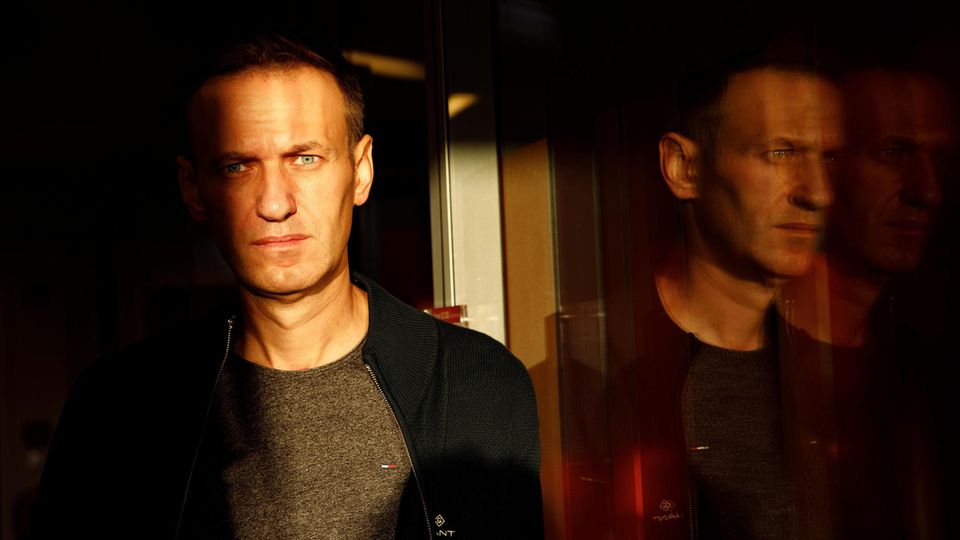Politician on Russian wanted list
Estonia’s Prime Minister Kaja Kallas warns in Hamburg against naivety and wishful thinking towards Russia
Kaja Kallas at the Matthiae meal with Hamburg’s First Mayor Peter Tschentscher (left) and Federal Chancellor Olaf Scholz
© FABIAN BIMMER / AFP
Kaja Kallas was invited as a guest of honor at the traditional Matthiae meal in Hamburg. Estonia’s prime minister warned the West against naivety about Russia in her speech – and recalled a memorable episode from 1994.
Kaja Kallas recalls the incident with Putin in 1994
She remembered the former Estonian President Lennart Meri, who was guest of honor at the Matthiae meal in 1994 and who had warned against Russian neo-imperialism. Vladimir Putin, who attended the meal in Hamburg as deputy mayor of St. Petersburg at the time, left the meal upset after the speech. One should not be distracted by this today if Russia wants to scare the West. Instead, everything should be done “to support Ukraine in pushing Russia back into its territory,” demanded the Prime Minister. “Our mantra should be that defense does not mean escalation.”
Kallas praised the fact that Germany has now drastically increased military aid to Ukraine and is becoming involved militarily in the Baltics. She also recalled the 60 professors at the University of Hamburg who successfully protested against the awarding of an honorary doctorate to Putin in 2004.
opposition in Russia
Arrested, poisoned, expelled: This is how Putin’s opponents risk their lives
The Estonian head of government, a sharp critic of Russia’s war of aggression in Ukraine, was wanted by Moscow a few days ago along with other people. The reason given was “a criminal case,” and Kremlin spokesman Dmitry Peskov accused those affected of “hostile actions toward historical memory and our country.”


